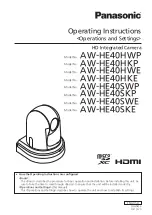
Guidelines:
•
User awareness instructions should accompany the device when transferred to other users.
•
Do not use this device if the operational requirements described herein are not met.
Operating Instructions:
•
Transmit no more than the rated duty factor of 50% of the time. To Transmit (Talk), push the Push to Talk (PTT) button. To
receive calls (listen), release the PTT button. Transmitting 50% of the time, or less, is important because the radio generates
measurable RF energy exposure only when transmitting in terms of measuring for standards compliance.
•
Transmit only when people outside the vehicle are at least the recommended minimum lateral distance away from a properly
installed according to installation instructions, externally mounted antenna.
•
When operating in front of the face, worn on the body, always place the radio in a Retevis approved clip, holder, holster, case,
or body harness for this product. Using approved body-worn accessories is important because the use of Non-Retevis approved
accessories may result in exposure levels, which exceed the IEEE/ICNIRP RF exposure limits.
Hand-held Mode
• Hold the radio in a vertical position with the microphone (and other parts of the radio including the antenna) at least 2.5 cm
(one inch) away from the nose or lips. The antenna should be kept away from the eyes. Keeping the radio at a proper distance is
important as RF exposure decreases with increasing distance from the antenna.
Phone Mode
•
When placing or receiving a phone call, hold your radio product as you would a wireless telephone. Speak directly into the
microphone.
Electromagnetic Interference/Compatibility
NOTE: Nearly every electronic device is susceptible to electromagnetic interference (EMI) if inadequately shielded, designed, or
otherwise configured for electromagnetic compatibility.
Avoid Choking Hazard
Small Parts. Not for children under 3 years.
Turn off your radio power in the following conditions:
WARNING
•
Turn off your radio before removing (installing) a battery or accessory or when charging battery.
•
Turn off your radio when you are in a potentially hazardous environments: Near electrical blasting caps,
in a blasting area, in explosive atmospheres (inflammable gas, dust particles, metallic powders, grain
powders, etc.).
•
Turn off your radio while taking on fuel or while parked at gasoline service stations.
To avoid electromagnetic interference and/or compatibility conflicts
••
Turn off your radio in any facility where posted notices instruct you to do so, hospitals or health care
facilities (Pacemakers, Hearing Aids and Other Medical Devices) may be using equipment that is sensitive
to external RF energy.
•
Turn off your radio when on board an aircraft. Any use of a radio must be in accordance with applicable
regulations per airline crew instructions.
Protect your hearing:
Содержание RT77
Страница 1: ...RT77 Body Camera User Manual...





























